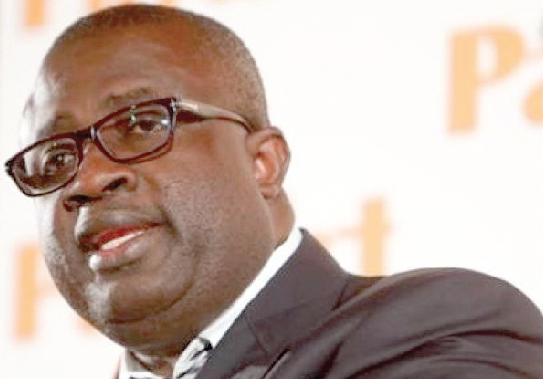
Decentralise operations of Minerals Commission - Govt urged
The government has been called upon to decentralised the operations of the Minerals Commission (MC) in the mining related areas to help regulate illegal mining activities in the country.
“The commission should also be empowered to license and provide training to illegal miners to prevent negative attributes associated with illegal mining popularly known as ‘galamsey’ activities,” the Head of Policy Unit and Energy Policy Advisor at the Africa Centre for Energy Policy (ACEP), Dr Ishmael Ackah said.
Dr Ackah, who made the call in an interview with the GRAPHIC BUSINESS in Accra, underlined that the commission placing its office at the mining related areas would ensure the country benefit from operations of galamsey operators.
The ruling New Patriotic Party (NPP) stated in its manifesto that it would reconstruct the small-scale mining industry so that its activities could take place within guidelines set up under the appropriate regulations.
This will enable small-scale miners to work and earn their livelihoods in a regulated, secure and lawful environment.
Dr Ackah said the mining sector remained a major backbone of Ghana’s economy as the leading foreign exchange earner for the country.
“It is not only the largest tax contributor, it also accounts for about 40 per cent of mechanised exports, while attracting foreign investments running into hundreds of millions of US dollars annually,” he said.
Impacts of illegal mining
The policy advisor said it could not be disputed that mining done on any scale impacts on the environment and that is why there are regular checks by designated authorities to ensure that mining concerns work according to laid down rules.
According to him, unregulated mining, however, escapes all the necessary checks and results in massive destruction of the environment.
For a long time, he said illegal mining had become the bane of many communities, with the communities resigning themselves to the destruction visited on their water bodies and farmlands because the authorities are at their wits’ end concerning the appropriate steps to take to halt the menace.
He noted that many communities were worried because the uses of chemicals even by the big companies were sometimes not controlled and it end up polluting their rivers.
“Thus, even if the activities of the bigger mining companies are fraught with accidental spillage of dangerous and harmful chemicals, then what about the illegal miners who do not follow any guidelines, hence the need to license and regulates their activities,” he added.
As a result, most of the country’s water bodies have been destroyed beyond recovery.
It has been severally reported in the media that illegal mining operations have become so complex and sophisticated and involve foreigners and their local collaborators who use very sophisticated weapons to ward off security personnel mandated by the government to stop their operations and people considered as intruders.
Although the Ghana Chamber of Mines has made several attempts to regularise the operations of small-scale miners to be able to monitor their activities, that has not worked to a large extend.
Dr Ackah said one of the reasons ascribed for the inability to stop illegal mining was the calibre of people behind its operations who include some highly placed officials, as well as some traditional authorities.
Going forward, he said all stakeholders needed to work together to stop the canker from destroying the environment.